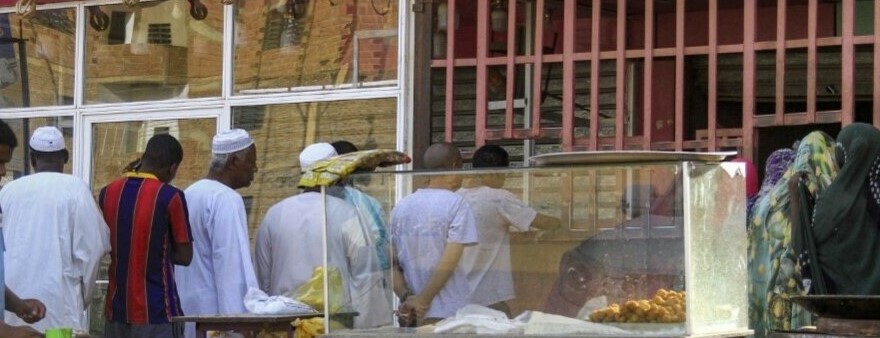Longer queues have been witnessed at bakeries in El Geneina town of West Darfur State, even after commodity prices were recently slashed by 50 percent.
Last week, the Norwegian Refugee Council (NRC) supported the bakeries by giving them funds to cover half the cost of wheat flour.
However, since the reduction of bread prices, residents have been lining up for the commodity at the bakeries, some as early as the wee hours of the morning.
No oversight mechanism has since followed the implementation of the agreement between the NRC and the bakers’ union in the state, under which the bakery owners committed to bear the administrative costs in exchange for fifty pounds per loaf.
The silent deal purports that NRC would bear the cost of a bag of flour (34) pounds, as the number of sacks given to the bakery owners ranged between three and twenty bags.
Radio Tamazuj spoke to some citizens about the slashing of the prices of bread and the challenges facing its implementation.
The majority opine that the absence of proper control mechanisms was to blame for the current commotion and chaotic scenes witnessed at the bakeries. Most people fear a possible shortage of bread once the window period of the project closes.
Abu Bakr Abbas from the Um Doyen neighbourhood said six bakeries in the area could not meet the demand for bread despite the NRC support.
He fears that the lack of a monitoring plan could provide some bakers with a loophole to hoard the wheat flour to the disadvantage of the citizens.
Abdul-Azim Baraka from the Al-Kifah residential area said: “After the support, the crisis increased and we are no longer able to find bread.”
“After the support, the lines returned from morning to evening, to the extent that citizens demanded that the old price be returned so that they could obtain it. We call on the authorities to legalize the matter,” he added.
Lawyer Hafez Idris described the NRC support and said: “What was wrong with the organization was that it did not study the matter properly, in addition to the lack of oversight of bakeries.”
Idris said the local community should have been involved in such an emergency programme.
Civil activist and human rights defender Hamdan Mohammad praised the bread subsidy and called for more essential services.
Meanwhile, civil society activist Yousif Mohammad Yousif said the initiative is good because it lifts the burden off the citizens. “It is a service that may not reach all people and may affect the market and possibly create a second crisis,” he said.
Yousif further said some bakery owners were dishonest and had taken advantage of the lack of oversight mechanisms to hoard wheat flour.




